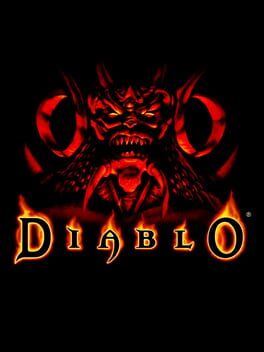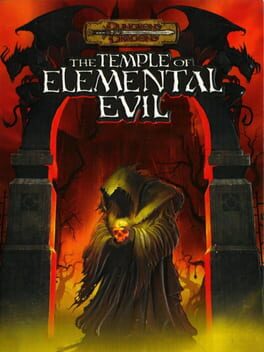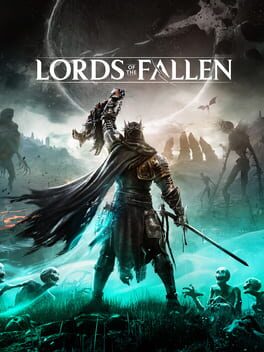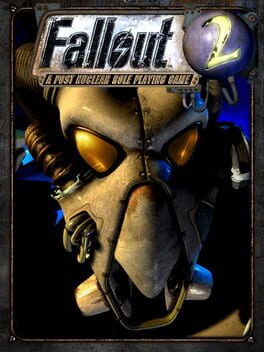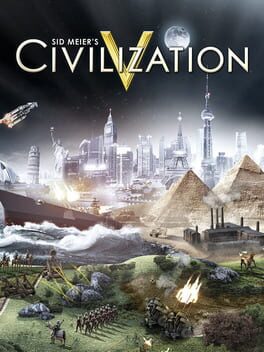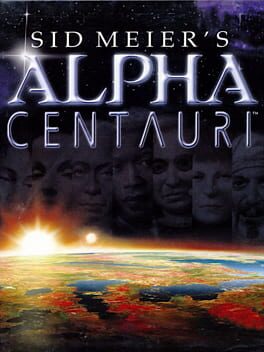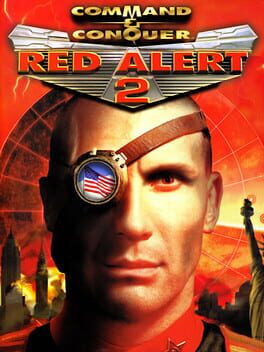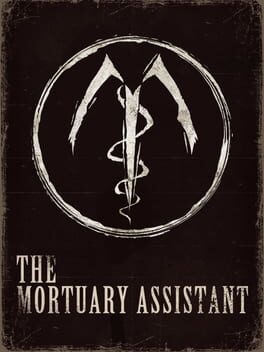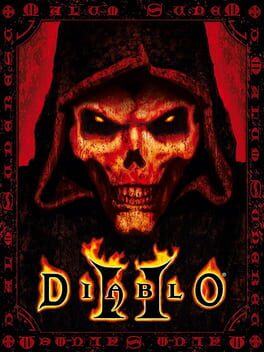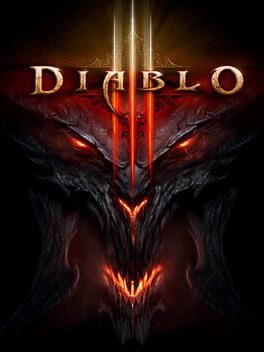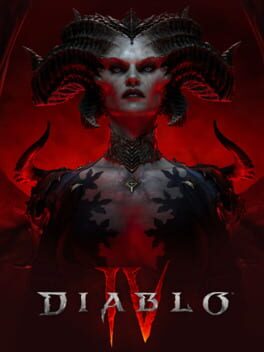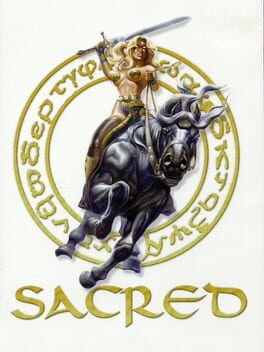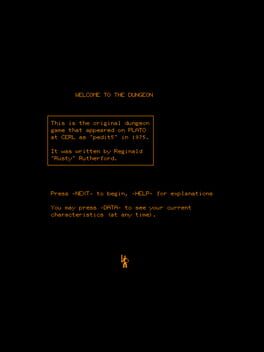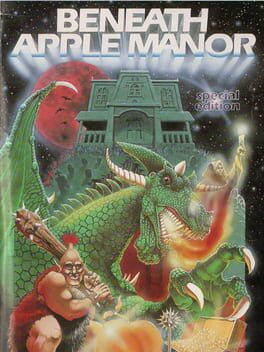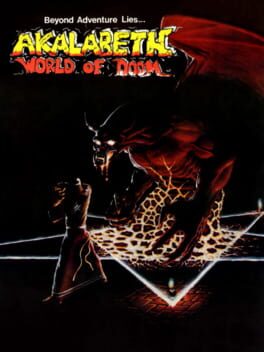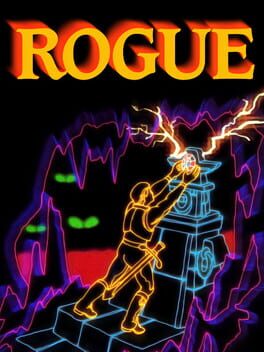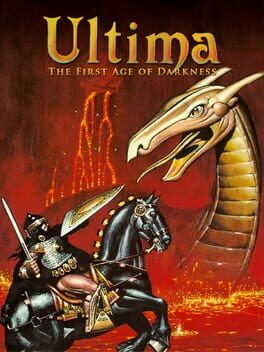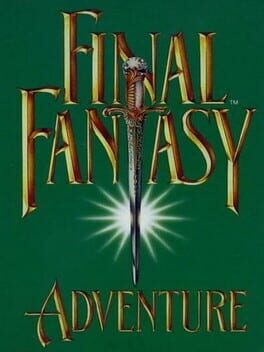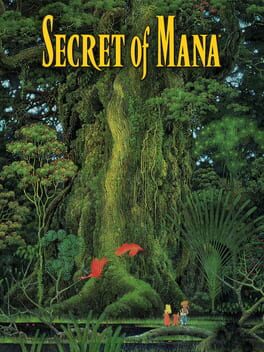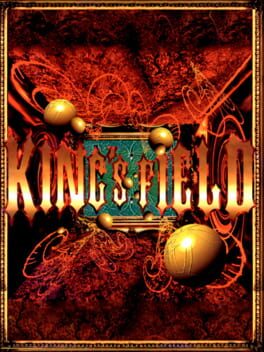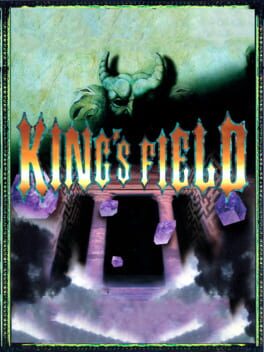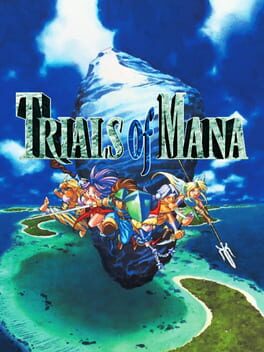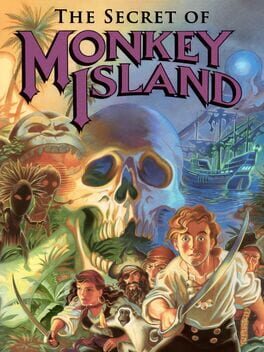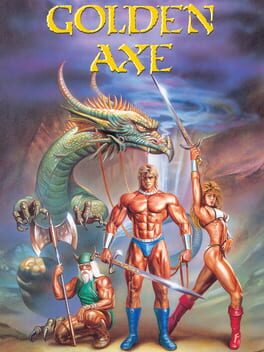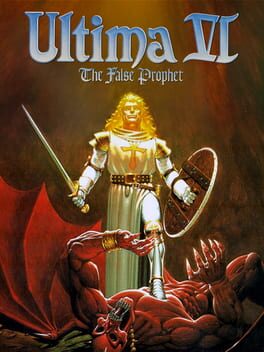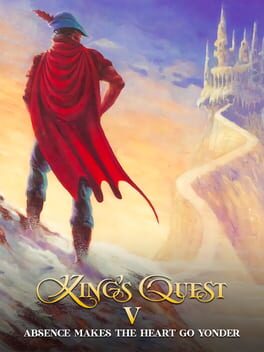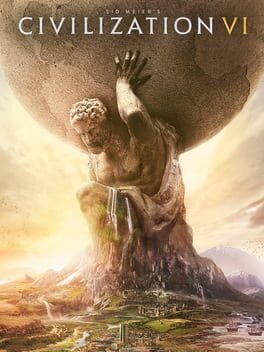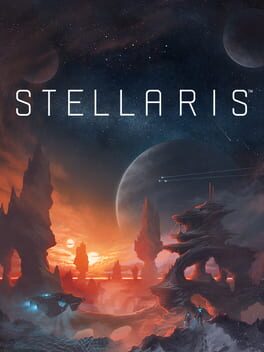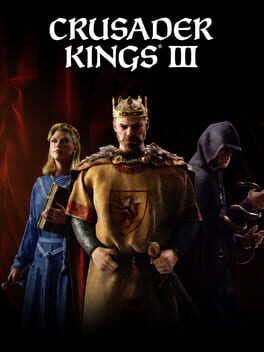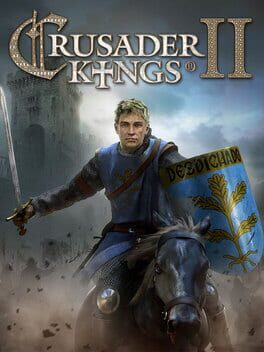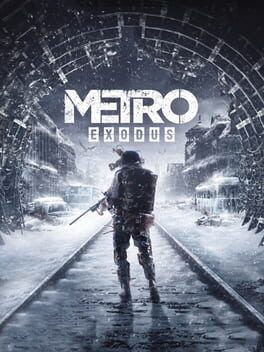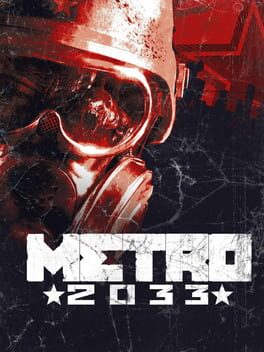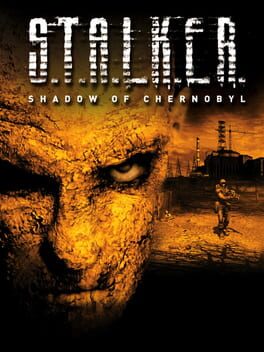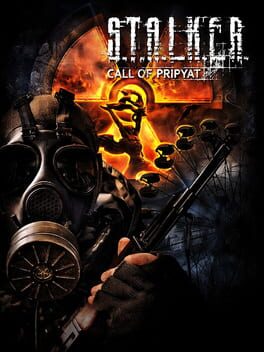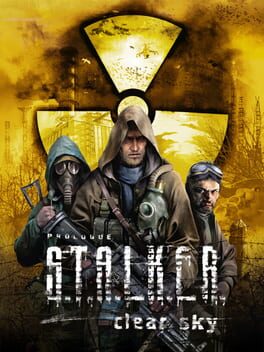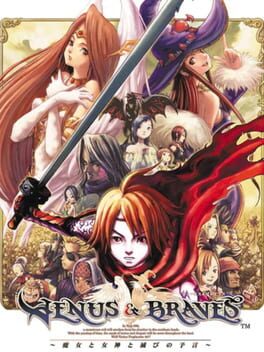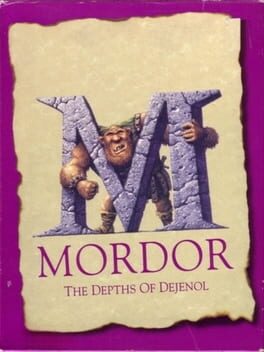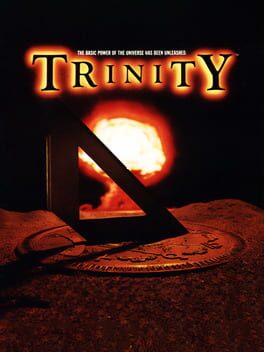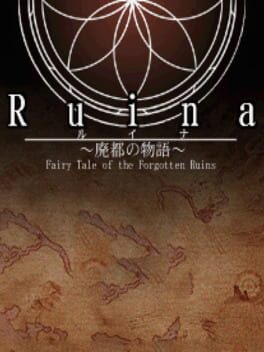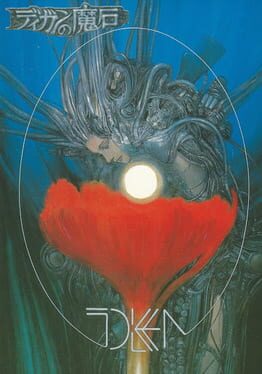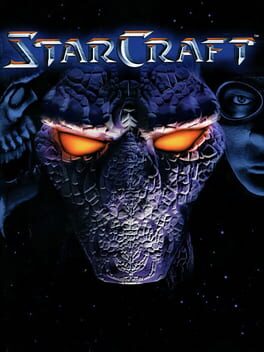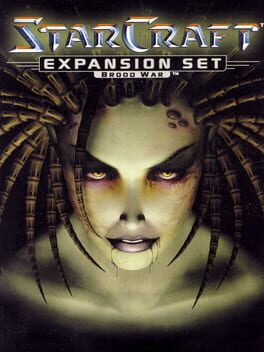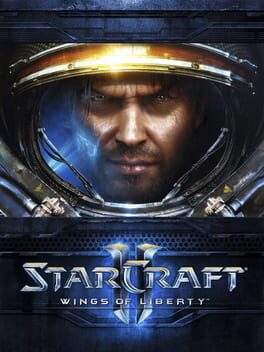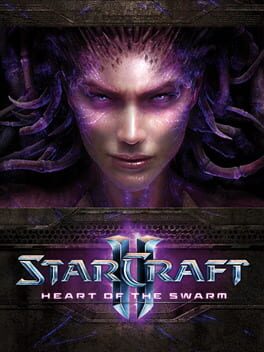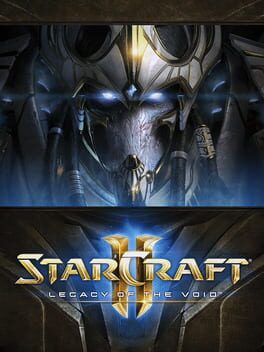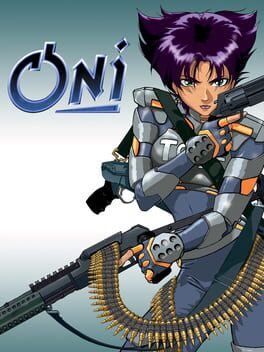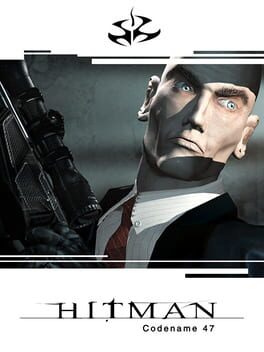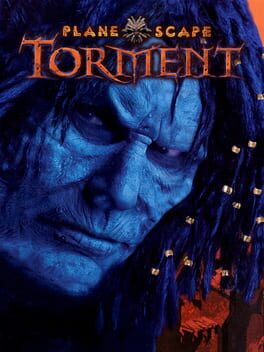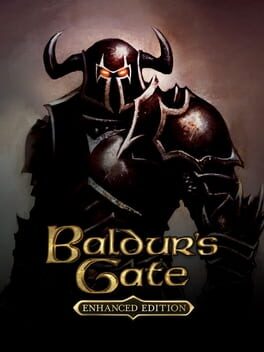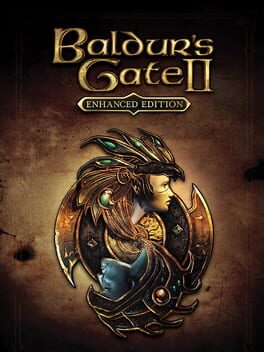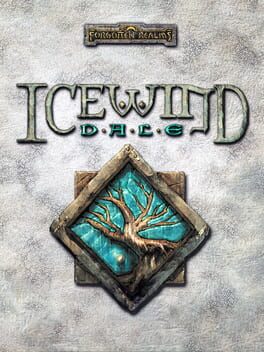anatolikbelikov
BACKER
103 reviews liked by anatolikbelikov
Diablo
1996
Totally shocked at how smooth of an experience this was. Usually when I play a PC game from the 90s I just assume I’m gonna have to read a guide to get around a bunch of weird archaic shit, and that is not the case here. I was able to just hit the ground running and feed demon after demon into the wood chipper while vibing with the atmosphere that is completely singular.
While it's not a bad game, it feels... ill conceived? It's definitely an adaptation of The Temple of Elemental Evil, the old D&D adventure, adapted for D&D 3.5. It really ends up feeling more like a dungeon crawling tactics game than a CRPG to me, and an unerringly difficult one at that. You could compare it to the Icewind Dale games, but those are fast and fluid and varied, mostly about the rush of combat. ToEE is slow and atmospheric, being about the dungeon crawl itself, but doesn't really recreate what's fun about doing a dungeon crawl in real life, the dynamism and flexibility of a human dungeon master's designs playing in a game that, no matter how harsh it can be, is forgiving (if you play with chill people).
Also, the game is real buggy. Or maybe just unclear about what's happening? I played with a community mod (temple+) and even then; characters stopped gaining xp randomly, turns would be lost out of the blue, the game would crash and I'd need to replay 15 minutes of rote traveling just to get back to town.
I wouldn't play this if you don't just absolutely adore D&D 3.5.
Also, the game is real buggy. Or maybe just unclear about what's happening? I played with a community mod (temple+) and even then; characters stopped gaining xp randomly, turns would be lost out of the blue, the game would crash and I'd need to replay 15 minutes of rote traveling just to get back to town.
I wouldn't play this if you don't just absolutely adore D&D 3.5.
Final Fantasy VII Remake project has absolutely no right working as well as it does, and Rebirth doubles down on what made Remake work -- and occasionally what really brought it down, with more unsavory additions to spare. But don't get the wrong idea, in Rebirth's extravangance and conceptually superfluous presentation exists the most actualized and engrossing take on the events of Final Fantasy VII's post-Midgar disc one that one could possibly even imagine, and I'm saying this as somebody whose love for the original is ironclad and unbreakable: Rebirth is probably going to end up being my favorite way to experience the moments tucked away in what was once a maybe 7 to 12 hour-ish section of a 25 hour long game -- with the 7 to 12 hour section now being close to 50 or 60 hours on average I'd imagine. That is to say, I've come to terms with a lot of the liberties Square has taken with the narrative and characterization and presentation, everything really; what made the original special to me, and most likely to many others as well, can't be perfectly replicated anyways, so I really do mean it when I say that the end result given here is bordering on a "best case scenario" for an adaptation of this vast a scope.
Much like Remake, characters that were once tableaus feel alive and truly connected as a group in a way the original just didn't have the ability to convey, just on an even more detailed and broader scale. And once again don't take that the wrong way, they're tableaus that I cherish dearly -- Final Fantasy VII's cast is my absolute favorite across like, all media -- but they're expanded upon so meaningfully: Tifa's self-destructive people-pleasing, Aerith's down to earth and fun attitude, Barret being the leftist extremist father figure we all know and love, Red XIII's deep loyalty, Yuffie's obnoxious little sister energy, Cait Sith's inopportune joviality, Cid's weird uncle vibes, and Vincent being the resident goth kid that has issues with authority. And their relationships with one other: Aerith's deep friendships with Tifa and Red XIII, Barret's new found friendships with Yuffie and Red XIII, and even the basic and immediate kinship many of them feel towards one other is more detailed and vibrant. I don't know man, I just love all these fuckin' guys, I constantly had the stupidest fucking grin on my face while playing this game it was honestly kinda cringe. Even side characters have so much more going on with them, certain characters that were previously throwaway will often give one a sense that there's something deeper going on with them as they continue to try to exist in this broken world, even the ones that are more comic relief than pathos-invoking.
The plot can often feel clumsy, but I'd say it's a lot more cohesive than the original's, pretty significantly too, the original occasionally feeling aimless and as it tried to find a reason to send you to the next exciting setpiece; even as somebody who replays the game often I find myself being confused which event flag I need to trigger next. And really the original Final Fantasy VII can be best-described as like, a bunch of Final Fantasy VI opera scenes strung together, and Rebirth leans into that so hard that I could see it being way too much for some people. If Final Fantasy XVI was way too dry for many, myself included, I could genuinely see Rebirth being perceived as excessively "wet" for others. Though, as a side note, when playing Final Fantasy XVI I'd often find myself unintentionally dozing off, whereas with Rebirth I actually had enormous trouble sleeping, both in finding a place I wanted to stop playing and the mild insomnia the excitement of getting to play the game again induced in my four day-ish long binge (which, I haven't done in a long fucking time without needing to take significant breaks, which happened quite often with Final Fantasy XVI, and as an adult in her 30s I think that's saying a lot).
On the topic of CBU1 styling super fucking hard on CBU3, god damn the combat in Rebirth is exactly what I wanted it to be, probably my favorite combat in general, from like, any video game? Like, it's not mechanically the deepest action game I've ever played, but it does expand upon Remake's systems in a meaningful way without upending what made those systems work in the first place. Final Fantasy has been focused on telling the player what any given character is about through how they play since like, FF4, and Rebirth's execution of that philosophy doesn't miss at all. Tifa is more fun than ever with an extensive aerial toolkit, I fucking love that she can juggle enemies and it kinda became my go to strategy at a certain point, which like Tifa was the blueprint for young Theia so I'm so glad they did her so good in this game both on a gameplay and narrative level. Red XIII I have to say feels a little bit busted!! I'm bad at playing as him, and he still seems really fucking useful even with unskilled play. Cait Sith I'm still trying to wrap my head around, but I wouldn't have it any other way than making Cait Sith a confusing mess to properly utilize. I wish Vincent was playable, one of like 10 or so boys in media that I actually care about, but I kinda understand why he isn't when he shows up so late that it was probably better to just focus on polishing the rest of the cast than implementing what's probably going to be a pretty unique kit on top of everything else going on.
There's a particular level involving Cait Sith that I'm pretty sure is gonna become like the third or fourth most contentious thing about the game, but I fucking loved it in a really fucked up Banjo-Tooieian way and nobody can take that away from me. The thing I can see becoming the second most contentious aspect about the game, what I thought would be the primary contention until I got to the ending (which I'll get to in a bit, and without spoiling anything, but if you don't want to know literally anything just be forewarned), is the open world game design elements. The best way to describe it is probably Xenoblade with some pointless Ubisoft shit, but it's not really as bad as it sounds, and much of it is entirely optional only providing secondary or tertiary benefits to character progression. As a "modern" interpretation of the original's wide, open, and mostly empty fields populated by sets of random enemy tables, I think it's probably a fair enough way to go about things. The life springs and towers I wasn't so much a fan of, like why do the towers play the BotW theme But At Home when you activate them, but the summon temple thingies felt a lot more meaningful than just picking up a materia off the ground, like how it usually worked in the original (seriously who was dropping all those bahamut variants and just leaving them there). The map designs themselves I did enjoy though, even if the Cosmo Canyon and Gongaga regions can be a little tedious at times, I honestly prefer having to mentally map out the geographical logic of an open world than the modern trend of empty fields with little identity and often no reason to engage with a game's environments and systems.
That said, the more linear "dungeon" levels are kinda mostly the same deal, but they did an even better job at making them feel like real places you're exploring this time 'round, as opposed to the modified FF13 hallway dealie in Remake. They're still largely linear, but the best way to explain why I think they work better is how the Final Fantasy standby of forked paths with option A being progression and option B being a treasure chest is more heavily obscured; I actually got a little bit lost in a couple of levels!!! Though sometimes that was the result of perhaps poor tutorialization of a level's specific gimmick or progress not being visually distinct enough, which like god damn the graphics are so fucking good in this game that it's almost hard to see anything unless I walked up to my TV (maybe I just need to invest in a larger screen for my old lady eyes but whateverrr), it's no wonder that there are several areas where the Uncharted climbing walls have the RE4R yellow paint on them. I know people are gonna slam the game for shit like that, which is like, yeah I can kinda get it, personally would've preferred more non-diegetic signaling over things that make me have annoying CinemaSin-esque intrusive thoughts about "who is painting all this shit out here in the middle of nowhere".
And you know, it's not gonna be the most discussed thing in the end, as uninspired as Rebirth's "structural quirks" may feel now, they'll probly become innocuous given enough time; that's just how these thing typically go. I wanna say the same will happen for the game's ending which... yeah. Not gonna say much here, but if you find yourself frustrated by it, I'd say give yourself some space and rewatch it on YouTube or something. It's a lot to take in, and I found it a lot more impactful after I had gotten some sleep and finally digested what was being shown to me. I don't think it was all exactly what I wanted it to be, far from it maybe, but there's something to be said about the way the entirety of Rebirth takes special moments dear to us and recontextualizes them into new special moments, sometimes even more special.
And a bit of a tangent, but I loathe the critic scores for this game. Not so much because they're necessarily wrong for enjoying the game, but because I'm starting to strongly believe that art, and especially interactive art, can't really be quantified on such simple terms, especially when people tend to have such viscerally opposed reactions to their experiences with any given work. What does a 10/10 even mean? On a personal level I could almost understand, but detached from the context of that personal experience how can we consider any piece of media to be in some arbitrary upper percentile of perfection? I guess I'm saying this because I know with scores like that people are going to come at this game with a certain set of expectations, but despite it being one of the most gorgeous and polished Final Fantasy titles that CBU1 has brought out in recent years, it's a deeply uneven experience. You will be frustrated, maybe you'll even get annoyed at the many side quests that suck ass and are total shit!!! Or something, maybe you'll hate the combat even if it's exactly what my brain has always wanted FF7's combat to be. But I guess like, when you look at a piece of art in its totality as opposed to a given qualification of Good or Bad, it's easier to just appreciate things as they are. Or even fucking hate them for what they are! People on this website tend to tear the shit out of really popular games and who's to say they're wrong for looking past consensus into a deeper inner truth, which you know, even if that comes from a place of unfounded contrarianism, good for them, man. Fuck video games!!
I hope it doesn't come off like I'm waffling or anything, I just really love this game, and I feel like the things I hated about it only made me love it more in a really fucked up way. I think playing Drakengard 3 for the first time a year ago gave me brain damage or something. Also like, on a final note, let me get more on brand here: there's some premier fucking queerbaiting going on here, and if that ain't more accurate to the actual single lesbian in her early 30s experience than any other AAA video game that has some fake ass porn-afflicted interpretation of sapphic romance where flesh puppets say sweet nothings at each other after completing a single questline or whatever the fuck, than I don't know what is. Anyways, sorry I had to make it gay in the end, but truly that is what the Final Fantasy VII was about all along: twinks with swords and bisexual women who can suplex kaijus. Which, you know, being able to do the latter is what's going to be main determinant if part 3 is good or not, so the ball's in your court now Square...
Much like Remake, characters that were once tableaus feel alive and truly connected as a group in a way the original just didn't have the ability to convey, just on an even more detailed and broader scale. And once again don't take that the wrong way, they're tableaus that I cherish dearly -- Final Fantasy VII's cast is my absolute favorite across like, all media -- but they're expanded upon so meaningfully: Tifa's self-destructive people-pleasing, Aerith's down to earth and fun attitude, Barret being the leftist extremist father figure we all know and love, Red XIII's deep loyalty, Yuffie's obnoxious little sister energy, Cait Sith's inopportune joviality, Cid's weird uncle vibes, and Vincent being the resident goth kid that has issues with authority. And their relationships with one other: Aerith's deep friendships with Tifa and Red XIII, Barret's new found friendships with Yuffie and Red XIII, and even the basic and immediate kinship many of them feel towards one other is more detailed and vibrant. I don't know man, I just love all these fuckin' guys, I constantly had the stupidest fucking grin on my face while playing this game it was honestly kinda cringe. Even side characters have so much more going on with them, certain characters that were previously throwaway will often give one a sense that there's something deeper going on with them as they continue to try to exist in this broken world, even the ones that are more comic relief than pathos-invoking.
The plot can often feel clumsy, but I'd say it's a lot more cohesive than the original's, pretty significantly too, the original occasionally feeling aimless and as it tried to find a reason to send you to the next exciting setpiece; even as somebody who replays the game often I find myself being confused which event flag I need to trigger next. And really the original Final Fantasy VII can be best-described as like, a bunch of Final Fantasy VI opera scenes strung together, and Rebirth leans into that so hard that I could see it being way too much for some people. If Final Fantasy XVI was way too dry for many, myself included, I could genuinely see Rebirth being perceived as excessively "wet" for others. Though, as a side note, when playing Final Fantasy XVI I'd often find myself unintentionally dozing off, whereas with Rebirth I actually had enormous trouble sleeping, both in finding a place I wanted to stop playing and the mild insomnia the excitement of getting to play the game again induced in my four day-ish long binge (which, I haven't done in a long fucking time without needing to take significant breaks, which happened quite often with Final Fantasy XVI, and as an adult in her 30s I think that's saying a lot).
On the topic of CBU1 styling super fucking hard on CBU3, god damn the combat in Rebirth is exactly what I wanted it to be, probably my favorite combat in general, from like, any video game? Like, it's not mechanically the deepest action game I've ever played, but it does expand upon Remake's systems in a meaningful way without upending what made those systems work in the first place. Final Fantasy has been focused on telling the player what any given character is about through how they play since like, FF4, and Rebirth's execution of that philosophy doesn't miss at all. Tifa is more fun than ever with an extensive aerial toolkit, I fucking love that she can juggle enemies and it kinda became my go to strategy at a certain point, which like Tifa was the blueprint for young Theia so I'm so glad they did her so good in this game both on a gameplay and narrative level. Red XIII I have to say feels a little bit busted!! I'm bad at playing as him, and he still seems really fucking useful even with unskilled play. Cait Sith I'm still trying to wrap my head around, but I wouldn't have it any other way than making Cait Sith a confusing mess to properly utilize. I wish Vincent was playable, one of like 10 or so boys in media that I actually care about, but I kinda understand why he isn't when he shows up so late that it was probably better to just focus on polishing the rest of the cast than implementing what's probably going to be a pretty unique kit on top of everything else going on.
There's a particular level involving Cait Sith that I'm pretty sure is gonna become like the third or fourth most contentious thing about the game, but I fucking loved it in a really fucked up Banjo-Tooieian way and nobody can take that away from me. The thing I can see becoming the second most contentious aspect about the game, what I thought would be the primary contention until I got to the ending (which I'll get to in a bit, and without spoiling anything, but if you don't want to know literally anything just be forewarned), is the open world game design elements. The best way to describe it is probably Xenoblade with some pointless Ubisoft shit, but it's not really as bad as it sounds, and much of it is entirely optional only providing secondary or tertiary benefits to character progression. As a "modern" interpretation of the original's wide, open, and mostly empty fields populated by sets of random enemy tables, I think it's probably a fair enough way to go about things. The life springs and towers I wasn't so much a fan of, like why do the towers play the BotW theme But At Home when you activate them, but the summon temple thingies felt a lot more meaningful than just picking up a materia off the ground, like how it usually worked in the original (seriously who was dropping all those bahamut variants and just leaving them there). The map designs themselves I did enjoy though, even if the Cosmo Canyon and Gongaga regions can be a little tedious at times, I honestly prefer having to mentally map out the geographical logic of an open world than the modern trend of empty fields with little identity and often no reason to engage with a game's environments and systems.
That said, the more linear "dungeon" levels are kinda mostly the same deal, but they did an even better job at making them feel like real places you're exploring this time 'round, as opposed to the modified FF13 hallway dealie in Remake. They're still largely linear, but the best way to explain why I think they work better is how the Final Fantasy standby of forked paths with option A being progression and option B being a treasure chest is more heavily obscured; I actually got a little bit lost in a couple of levels!!! Though sometimes that was the result of perhaps poor tutorialization of a level's specific gimmick or progress not being visually distinct enough, which like god damn the graphics are so fucking good in this game that it's almost hard to see anything unless I walked up to my TV (maybe I just need to invest in a larger screen for my old lady eyes but whateverrr), it's no wonder that there are several areas where the Uncharted climbing walls have the RE4R yellow paint on them. I know people are gonna slam the game for shit like that, which is like, yeah I can kinda get it, personally would've preferred more non-diegetic signaling over things that make me have annoying CinemaSin-esque intrusive thoughts about "who is painting all this shit out here in the middle of nowhere".
And you know, it's not gonna be the most discussed thing in the end, as uninspired as Rebirth's "structural quirks" may feel now, they'll probly become innocuous given enough time; that's just how these thing typically go. I wanna say the same will happen for the game's ending which... yeah. Not gonna say much here, but if you find yourself frustrated by it, I'd say give yourself some space and rewatch it on YouTube or something. It's a lot to take in, and I found it a lot more impactful after I had gotten some sleep and finally digested what was being shown to me. I don't think it was all exactly what I wanted it to be, far from it maybe, but there's something to be said about the way the entirety of Rebirth takes special moments dear to us and recontextualizes them into new special moments, sometimes even more special.
And a bit of a tangent, but I loathe the critic scores for this game. Not so much because they're necessarily wrong for enjoying the game, but because I'm starting to strongly believe that art, and especially interactive art, can't really be quantified on such simple terms, especially when people tend to have such viscerally opposed reactions to their experiences with any given work. What does a 10/10 even mean? On a personal level I could almost understand, but detached from the context of that personal experience how can we consider any piece of media to be in some arbitrary upper percentile of perfection? I guess I'm saying this because I know with scores like that people are going to come at this game with a certain set of expectations, but despite it being one of the most gorgeous and polished Final Fantasy titles that CBU1 has brought out in recent years, it's a deeply uneven experience. You will be frustrated, maybe you'll even get annoyed at the many side quests that suck ass and are total shit!!! Or something, maybe you'll hate the combat even if it's exactly what my brain has always wanted FF7's combat to be. But I guess like, when you look at a piece of art in its totality as opposed to a given qualification of Good or Bad, it's easier to just appreciate things as they are. Or even fucking hate them for what they are! People on this website tend to tear the shit out of really popular games and who's to say they're wrong for looking past consensus into a deeper inner truth, which you know, even if that comes from a place of unfounded contrarianism, good for them, man. Fuck video games!!
I hope it doesn't come off like I'm waffling or anything, I just really love this game, and I feel like the things I hated about it only made me love it more in a really fucked up way. I think playing Drakengard 3 for the first time a year ago gave me brain damage or something. Also like, on a final note, let me get more on brand here: there's some premier fucking queerbaiting going on here, and if that ain't more accurate to the actual single lesbian in her early 30s experience than any other AAA video game that has some fake ass porn-afflicted interpretation of sapphic romance where flesh puppets say sweet nothings at each other after completing a single questline or whatever the fuck, than I don't know what is. Anyways, sorry I had to make it gay in the end, but truly that is what the Final Fantasy VII was about all along: twinks with swords and bisexual women who can suplex kaijus. Which, you know, being able to do the latter is what's going to be main determinant if part 3 is good or not, so the ball's in your court now Square...
Lords of the Fallen
2023
Barely worked on day one but after two weeks of constant patching it slowly got up to a decent standard. It's not really good enough for anyone to stick with it through that period but I was in the mood for another Souls-like after Lies Of P and, although this doesn't get anywhere near that game mechanically, the setting and world-building in Lords of the Fallen really hooked me. It was like walking around inside a particularly evil black metal album cover. The lore is a lot more on the nose than the subtle ways From Software weave their stories into the world but I can't deny it, I thought it was pretty rad. Really grim at times. Like a big 3D Blasphemous.
It's a little rough around the edges, the combat takes a while to really come good and it tries to be a little to clever for its own good at times, in regards to how many systems it throws at you, but if you're a fairly seasoned Souls vet you should be able to cope and, once you hit the mid-point the game really hits its stride. Whoever decided that the first major area should be this game's Blighttown equivalent needs a stern talking to, mind. This game does not put its best foot forward.
It's probably a three out of five in the grand scheme of things, but to me it is a solid four.
It's a little rough around the edges, the combat takes a while to really come good and it tries to be a little to clever for its own good at times, in regards to how many systems it throws at you, but if you're a fairly seasoned Souls vet you should be able to cope and, once you hit the mid-point the game really hits its stride. Whoever decided that the first major area should be this game's Blighttown equivalent needs a stern talking to, mind. This game does not put its best foot forward.
It's probably a three out of five in the grand scheme of things, but to me it is a solid four.
Fallout 2
1998
Fallout 2 improves upon the foundation of Fallout 1 in many ways and when people are reminiscing about "the good old Fallouts", the things they're thinking about are almost entirely from Fallout 2.
The combat is a smoother experience and while it has some issues (that I'll get into later), it is a generally better game to play. The writing is, on average, better than FO1 (with the caveat that the humor tends to be much more abrasive - either opening mocking the game or its characters, or winking and nodding at how silly videogames are. I'm not a fan of either of those things but your mileage may vary). The crowning bit of this game, though is the ending. It's a pretty great ending that actually sets up one of the biggest facts of the setting that the Bethesda games later leaned into quite heavily.
But before I get too much further or get into too much detail, I need to get into some of the bad stuff. First off, the game is deeply racist. There's the very obvious stuff like Hakunin and Sulik both being bizarre mish-mashes of actual cultural traditions which result in deeply offensive caricatures. But there's also an idea that is pervasive in post-apocalyptic fiction that humanity would somehow "regress" back to more "basic" types of cultural, specifically that tribal or indigenous cultures are somehow "lesser" than more "advanced" cultures. This idea is straight-up racist and deeply offensive to indigenous peoples because it assumes that they are somehow inherently less intelligent and less capable because they live in tents and not in bombed-out buildings. Fallout 2 then takes it a step further and leans into this idea by having people (especially in the early game) refer to your character as "a tribal" and will talk down to you because of it. The game never seems to do this knowingly, either, because it never really remarks on how that's bad or anything - it just considers it a truth of the setting. On top of that, there's the classic Fallout racism that is in each and every game with ghouls. If you have the ghoul companion then you're going to have to tell him to wait outside whenever you enter a building because people 'don't like his kind around here.' The game at least seems aware of what it's doing with this but still isn't doing much to make note that people are being racist and that's a bad thing. It's once again just considered a factual part of the fiction. At least when Fallout 1 was racist it had the good graces to be ashamed and try to hide it a bit.
My other main issue with the game is that the combat, while an improvement FO1, is a slog. At the start it's okay because it's just the beginning and, hey, whatever, it's fine. But by the end of the game, nothing about the combat has changed in any meaningful way except now instead of fighting geckos and rad scorpions, you're fighting groups of Enclave soldiers in power armor. So you either have to do even more of this not-great combat to level up to even up the playing field so you can maybe survive all these random encounters or dump a bunch of your points into the Outdoorsman skill so you can avoid the random encounters completely. It's a poorly thought out system that seems to punish you for avoiding combat (because you get less experience) but also punish you for engaging in combat (by draining resources like health and ammo). It's not fun at all and is only worse because the game never adds any sort of interesting combat mechanics for you to implement. There are no skills, no special weapons, nothing that would make you approach combat in a different or more interesting way. The entire game you're either shooting things with a gun or hitting them in melee.
The issues with the combat connect into the later parts of the game where for the final third or so, the game sends you on a series of very long fetch quests. "Oh you just got here, we need you to go somewhere else to get one item or talk to a person." Over and over and over again. So you end up having tons of these high-level encounters while you're running all across the map to try and find every macguffin to move the plot along. It's an awful grind that exists only to drag out the length of the game. The actual end area of the Enclave Base is good but I'm not sure if it's even fully worth how much of an awful slog all these fetch quests are.
And that brings us to the ending which, outside of one specific part, I think it's pretty good! The most interesting parts of the story are here with some big reveals about the Enclave and the truth about the world as a whole. It should be said though, that none of those interesting reveals are ever hinted at when they really should have been just to let you know that something bigger was going on and not just evil people being cartoon villains (okay, it still is somewhat that but not entirely).
That one issue I mentioned about the ending is, once again, combat. After everything is said and done, you have to fight through a final boss. Despite Fallout 2 being touted as the game you can talk your way through, you still have to fight the biggest damage sponge in the game (and on a time limit, no less!) For a game that encourages so many different types of play and wants you to play around with how you interact with the world, it's absolutely bizarre that the ending is a fight with a big slab of beef with a minigun.
So overall the game is an improvement over Fallout 1 and I'd say a pretty alright game. Just don't be afraid to open up a character editor and give yourself some stats so you don't have to deal with atrocious end-game combat. It's a game you play for the story, there's no good reason to suffer through unrelated parts just to get to the good bits.
Oh and one final thought: I just want to give a shoutout to the talking scorpion. It's the funniest gag in the entire game and maybe the whole franchise. It plays within the game's setting (instead of most of the humor which can get pretty meta both about Fallout and about videogames as a whole) but it also has interactions with the game's mechanics and the player's stats. It's very clever and silly and fun and good.
The combat is a smoother experience and while it has some issues (that I'll get into later), it is a generally better game to play. The writing is, on average, better than FO1 (with the caveat that the humor tends to be much more abrasive - either opening mocking the game or its characters, or winking and nodding at how silly videogames are. I'm not a fan of either of those things but your mileage may vary). The crowning bit of this game, though is the ending. It's a pretty great ending that actually sets up one of the biggest facts of the setting that the Bethesda games later leaned into quite heavily.
But before I get too much further or get into too much detail, I need to get into some of the bad stuff. First off, the game is deeply racist. There's the very obvious stuff like Hakunin and Sulik both being bizarre mish-mashes of actual cultural traditions which result in deeply offensive caricatures. But there's also an idea that is pervasive in post-apocalyptic fiction that humanity would somehow "regress" back to more "basic" types of cultural, specifically that tribal or indigenous cultures are somehow "lesser" than more "advanced" cultures. This idea is straight-up racist and deeply offensive to indigenous peoples because it assumes that they are somehow inherently less intelligent and less capable because they live in tents and not in bombed-out buildings. Fallout 2 then takes it a step further and leans into this idea by having people (especially in the early game) refer to your character as "a tribal" and will talk down to you because of it. The game never seems to do this knowingly, either, because it never really remarks on how that's bad or anything - it just considers it a truth of the setting. On top of that, there's the classic Fallout racism that is in each and every game with ghouls. If you have the ghoul companion then you're going to have to tell him to wait outside whenever you enter a building because people 'don't like his kind around here.' The game at least seems aware of what it's doing with this but still isn't doing much to make note that people are being racist and that's a bad thing. It's once again just considered a factual part of the fiction. At least when Fallout 1 was racist it had the good graces to be ashamed and try to hide it a bit.
My other main issue with the game is that the combat, while an improvement FO1, is a slog. At the start it's okay because it's just the beginning and, hey, whatever, it's fine. But by the end of the game, nothing about the combat has changed in any meaningful way except now instead of fighting geckos and rad scorpions, you're fighting groups of Enclave soldiers in power armor. So you either have to do even more of this not-great combat to level up to even up the playing field so you can maybe survive all these random encounters or dump a bunch of your points into the Outdoorsman skill so you can avoid the random encounters completely. It's a poorly thought out system that seems to punish you for avoiding combat (because you get less experience) but also punish you for engaging in combat (by draining resources like health and ammo). It's not fun at all and is only worse because the game never adds any sort of interesting combat mechanics for you to implement. There are no skills, no special weapons, nothing that would make you approach combat in a different or more interesting way. The entire game you're either shooting things with a gun or hitting them in melee.
The issues with the combat connect into the later parts of the game where for the final third or so, the game sends you on a series of very long fetch quests. "Oh you just got here, we need you to go somewhere else to get one item or talk to a person." Over and over and over again. So you end up having tons of these high-level encounters while you're running all across the map to try and find every macguffin to move the plot along. It's an awful grind that exists only to drag out the length of the game. The actual end area of the Enclave Base is good but I'm not sure if it's even fully worth how much of an awful slog all these fetch quests are.
And that brings us to the ending which, outside of one specific part, I think it's pretty good! The most interesting parts of the story are here with some big reveals about the Enclave and the truth about the world as a whole. It should be said though, that none of those interesting reveals are ever hinted at when they really should have been just to let you know that something bigger was going on and not just evil people being cartoon villains (okay, it still is somewhat that but not entirely).
That one issue I mentioned about the ending is, once again, combat. After everything is said and done, you have to fight through a final boss. Despite Fallout 2 being touted as the game you can talk your way through, you still have to fight the biggest damage sponge in the game (and on a time limit, no less!) For a game that encourages so many different types of play and wants you to play around with how you interact with the world, it's absolutely bizarre that the ending is a fight with a big slab of beef with a minigun.
So overall the game is an improvement over Fallout 1 and I'd say a pretty alright game. Just don't be afraid to open up a character editor and give yourself some stats so you don't have to deal with atrocious end-game combat. It's a game you play for the story, there's no good reason to suffer through unrelated parts just to get to the good bits.
Oh and one final thought: I just want to give a shoutout to the talking scorpion. It's the funniest gag in the entire game and maybe the whole franchise. It plays within the game's setting (instead of most of the humor which can get pretty meta both about Fallout and about videogames as a whole) but it also has interactions with the game's mechanics and the player's stats. It's very clever and silly and fun and good.
[This is being written with all the expansions/DLC included in mind]
Civilization V is probably the greatest strategy game I've ever played with how utterly addicting it is. There's a "Time Played" section down there, and yeah, I see it. But I'm not going to fill it in, because it's a bit embarrassing. I played this game so much in the past because I fell into that "one more turn" syndrome. Civlization V's systems have a learning curve, but I wouldn't say it's a steep one - but it's not easy to get a hang of either, I'll admit. But once you do get a hang of Civ V, you can get enraptured by it. There's a simplistic joy in it. The systems are just the right amount of engaging without being too overly in-depth like some other games in the series (cough, Civ VI, cough).
Civ V also has a plethora of mods on the Steam workshop. A thriving modding community has extending Civilization V's lifespan so much that various mods are even considered sub-sections/total conversions of the game itself. The No Quitter's mod, Anno Domini, Gaia's mod pack, JFD's mechanic mods, etc. Leaders and Civilizations missing from the game probably have a mod available out there by now! CPU vs CPU games are quite popular as well, and I probably inflated my hours with them.
I just can't gush enough about how good Civ V is. Sometimes less is more when it comes to game mechanics, and Civ is a staple of that in the strategy genre.
Score: 97
Civilization V is probably the greatest strategy game I've ever played with how utterly addicting it is. There's a "Time Played" section down there, and yeah, I see it. But I'm not going to fill it in, because it's a bit embarrassing. I played this game so much in the past because I fell into that "one more turn" syndrome. Civlization V's systems have a learning curve, but I wouldn't say it's a steep one - but it's not easy to get a hang of either, I'll admit. But once you do get a hang of Civ V, you can get enraptured by it. There's a simplistic joy in it. The systems are just the right amount of engaging without being too overly in-depth like some other games in the series (cough, Civ VI, cough).
Civ V also has a plethora of mods on the Steam workshop. A thriving modding community has extending Civilization V's lifespan so much that various mods are even considered sub-sections/total conversions of the game itself. The No Quitter's mod, Anno Domini, Gaia's mod pack, JFD's mechanic mods, etc. Leaders and Civilizations missing from the game probably have a mod available out there by now! CPU vs CPU games are quite popular as well, and I probably inflated my hours with them.
I just can't gush enough about how good Civ V is. Sometimes less is more when it comes to game mechanics, and Civ is a staple of that in the strategy genre.
Score: 97
A sort of the sequel to Civilization 2, SMAC is the most beautiful science fiction story I've ever seen. Not to be taken lightly, Alpha Centauri deals with heavy existential themes on essence of being, technology, the best way to lead society, and the way you lead your colonists has a gamut of awesome and terrifying power: You can construct anything from the worst technological dystopia to a utopia where all untold human suffering has been worth it, with flavour text and lore being backed by believable precedents and roots in real physics and biology.
For a canonical playthrough and the best first impression, play as Gaia's Stepdaughters, and shoot for Transcendence Victory. Let it envelop you entirely.
For a canonical playthrough and the best first impression, play as Gaia's Stepdaughters, and shoot for Transcendence Victory. Let it envelop you entirely.
The platonic ideal of the single-player RTS. Almost perfect.
Very different factions, but each can counter the other's overwhelming strengths, so it's more about probing your enemy's defenses and figuring out the right angle. And sometimes the correct approach is A Lot Of Tanks.
Looks and sounds wonderful. FMV cutscenes with CyberLenin Udo Kier and President Ray Wise that embrace the camp and go all in on funny production design and overacting. Iconic soundtrack by Frank Klepacki and perhaps the best pre-rendered 3D of any RTS.
Campaign is basically flawless. Every mission is a puzzle that teaches you some interesting unit interactions, culminating in macro-scale matches that demand you apply everything you learned to date. Many little secrets and multiple approaches on each level makes exploration of the map profitable and fun.
In my heart, before my replay of this whole series, Tiberian Sun was the best one. But now, upon finishing Red Alert 2, I can confidently say it's the high point of Command and Conquer.
Very different factions, but each can counter the other's overwhelming strengths, so it's more about probing your enemy's defenses and figuring out the right angle. And sometimes the correct approach is A Lot Of Tanks.
Looks and sounds wonderful. FMV cutscenes with CyberLenin Udo Kier and President Ray Wise that embrace the camp and go all in on funny production design and overacting. Iconic soundtrack by Frank Klepacki and perhaps the best pre-rendered 3D of any RTS.
Campaign is basically flawless. Every mission is a puzzle that teaches you some interesting unit interactions, culminating in macro-scale matches that demand you apply everything you learned to date. Many little secrets and multiple approaches on each level makes exploration of the map profitable and fun.
In my heart, before my replay of this whole series, Tiberian Sun was the best one. But now, upon finishing Red Alert 2, I can confidently say it's the high point of Command and Conquer.
The jumpscares in this might be the best of any horror game I've played, although they were a mixed bag. A sliding scale of "boring" to "I had to pause and hold my chest for a moment". Some were even annoying, namely the grandma cutscene that is way too long and doesn't let you do anything while it happens.
Outside of the scares, the gameplay can get extremely repetitive. The placement of the tools shifting is more irritating than innovative, and aside from a rare few times, the demons are easy to spot. Definitely a game to be played in moderation.
The lore is interesting – especially the stuff that gets revealed in the 6th ending – but I'm personally not a fan of the non-linear story. It's a little confusing, and in terms of the during-shift cutscenes, also adds to the repetitiveness.
All in all, fun, but I probably won't return to it unless they add more endings or I get the urge to embalm some bodies.
Shifts Completed: 12
Times Possessed: 4 (3 were for endings okay trust)
Demons Banished: 10
Bodies Embalmed: 36
Bodies Burned: 15
Endings Got: 6 Out of 6
Outside of the scares, the gameplay can get extremely repetitive. The placement of the tools shifting is more irritating than innovative, and aside from a rare few times, the demons are easy to spot. Definitely a game to be played in moderation.
The lore is interesting – especially the stuff that gets revealed in the 6th ending – but I'm personally not a fan of the non-linear story. It's a little confusing, and in terms of the during-shift cutscenes, also adds to the repetitiveness.
All in all, fun, but I probably won't return to it unless they add more endings or I get the urge to embalm some bodies.
Shifts Completed: 12
Times Possessed: 4 (3 were for endings okay trust)
Demons Banished: 10
Bodies Embalmed: 36
Bodies Burned: 15
Endings Got: 6 Out of 6
Helldivers 2
2024
31 lists liked by anatolikbelikov
by zafqiel |
47 Games
by EVX |
959 Games
by Rhiwion |
108 Games
by vcharts |
247 Games
by TaylorMonteverd |
17 Games
by RainyYngwie |
32 Games
by abri |
150 Games
by KOG777 |
44 Games
